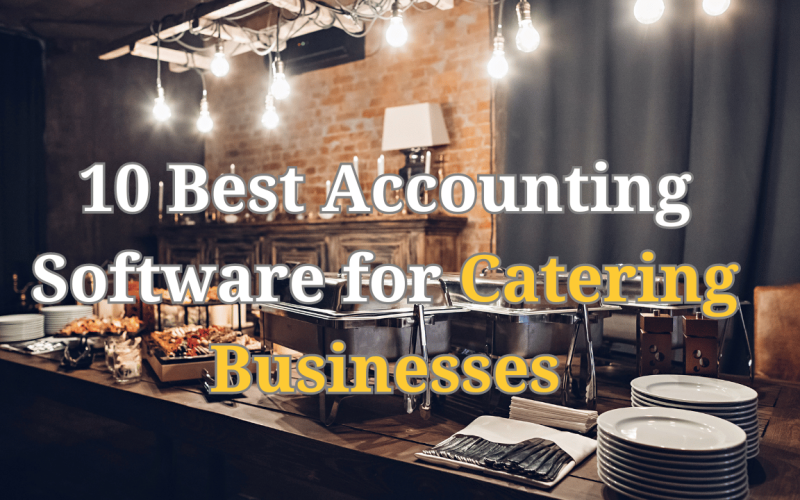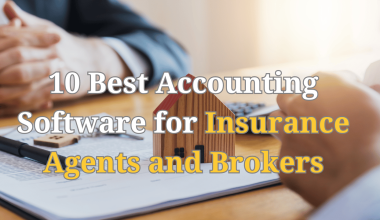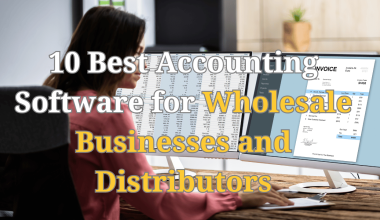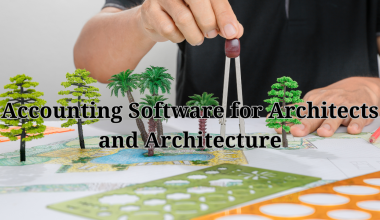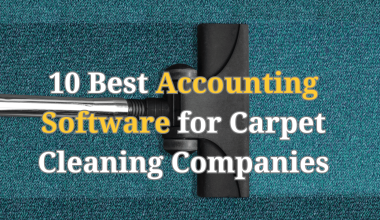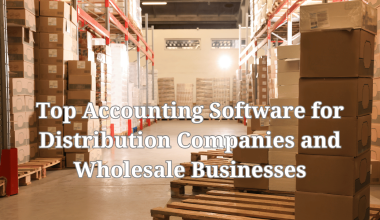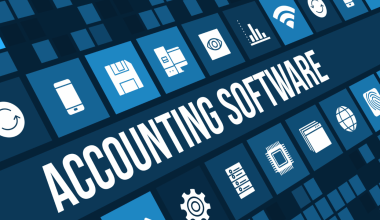Operating a successful catering company requires more than just delicious food.
You must also manage finances meticulously, which you can achieve with the right accounting software for catering businesses.
Choosing the right accounting software is crucial for caterers to control costs, invoice accurately, and maximize profits.
However, many mainstream small business accounting platforms lack key features needed for the food industry.
Inventory management, menu costing, recipe management, and robust reporting are critical.
The good news is there are excellent accounting solutions built specifically for caterers.
10 Best Accounting Software for Catering Businesses
Here are the 10 best accounting software options for catering companies:
1. CaterZen
CaterZen offers an all-in-one software suite designed from the ground up for caterers.
Their financial management features include full accounting, inventory, invoicing, and robust reporting tailored to the food industry.
Highlights include:
- Customizable recipes/ingredients tied to live inventory counts
- Online ordering and payment processing integrations
- Automated menu costing and cost control
- Event management tools
- Labor and mileage tracking
- Sales tax calculations
- Dedicated inventory for catered events
CaterZen provides the end-to-end financial management capabilities caterers need in a streamlined platform.
2. CATerease
CATerease is another catering-centric software solution with specialized accounting functionality.
Key financial features include:
- Customizable database to track clients, leads, vendors
- Quoting and proposals with customized menus
- Invoicing and accounts receivable
- Purchase orders and accounts payable
- Recipe management and menu costing
- Inventory control and shortage alerts
- Labor cost reporting per event
Their comprehensive feature set equips caterers to manage all back office tasks smoothly.
3. CaterXpress
CaterXpress positions itself as an all-in-one catering management platform. Their software tackles accounting tasks like:
- Building proposals and quotes with real-time costing
- Tracking event budgets vs. actuals
- Managing invoices, payments, tax calculations
- Tying recipes to inventory
- Managing vendors and purchase orders
- Labor cost analysis
- Flexible real-time reporting
Seamless accounting integration provides key financial insights caterers need daily.
4. Orchestra Software
Orchestra offers catering management solutions focused on sales and event planning.
But they also pack an integrated accounting punch including:
- Quoting and menu costing
- Client management and event history
- Integrated CRM features
- Inventory management
- Purchasing and vendor databases
- Invoicing with flexible billing rates
- Accounts payable/receivable automation
- Powerful report builder
Their accounting features interweave nicely with sales and operational tools.
Read Also: How to Start a Profitable Weave Business
5. Restaurant 365
Restaurant 365 provides award-winning accounting software built for the food industry.
Their catering edition includes key features like:
- Recipe costing and menu engineering
- Inventory management with waste and spoilage tracking
- Procurement tools for managing vendors and purchase orders
- Bill of materials to calculate precise event costs
- Labor costing insights
- Accounting integrations like QuickBooks
- Robust reporting for analyzing every cost
The platform scales easily as catering operations grow.
6. FoodFully
FoodFully focuses squarely on helping caterers manage inventory and recipes. But their platform provides useful accounting features, too like:
- Event planning cost sheets
- Developing quotes based on real costs
- Tying recipes to purchasing
- Invoice generation
- Menu cost reporting
- Inventory waste analysis
- Vendor management
Solid accounting fundamentals with a focus on cost control and reducing waste.
7. ProfitCents
ProfitCents provides an add-on catering module that connects to mainstream accounting platforms like QuickBooks Desktop and Online, Xero, and more.
Their accounting-specific features help caterers with:
- Detailed recipe and menu costing
- Purchasing and inventory management
- Bill of materials for exact event costing
- Revenue budgeting and tracking
- Labor cost analysis
An affordable option to add critical catering-focused accounting capabilities.
8. Restaurant Manager
Restaurant Manager offers versatile features for restaurants, caterers, bakeries, and food trucks.
Their accounting capabilities include:
- Custom proposals and menu pricing
- Cost analysis by recipe/menu item
- Integrated online ordering/payment processing
- CRM tools for managing clients
- Invoice generation
- Accounts payable automation
- General ledger
- Bank reconciliation
Solid accounting features paired with sales tools caterers need.
9. GlorYFi
Known for their catering CRM, GlorYFi also provides fundamental accounting capabilities like:
- Event budgeting and revenue tracking
- Invoice creation
- Accounts receivable management
- Purchase logging
- Reporting for analyzing costs and profit
- Integrations with accounting software
Light accounting features complement their sales and operational tools.
10. QuickBooks
Even basic QuickBooks plans can support fundamental catering accounting needs, including:
- Invoicing customers
- Tracking accounts payable/receivable
- Monitoring sales and expenses
- Managing bank transactions
- Running financial reports
- Keeping the general ledger
Robust inventory features are available in QuickBooks Plus and Advanced plans. Integrate with catering-specific solutions for added features like deep recipe costing.
Key Accounting Needs for Caterers
When evaluating accounting software for catering businesses, look for solutions that address these crucial needs:
- Recipe and menu costing – Precisely calculate ingredients, labor, and overhead costs for each menu item to price accurately and profitably.
- Portion costing – Determine precise costs for serving sizes, portions, pans, trays, and platters.
- Purchasing and inventory – Features for managing vendors, purchase orders, receiving, and real-time inventory counts.
- Event costing – Tools to calculate total costs per event based on menus, recipes, portions, rentals, labor, etc.
- Billing and invoicing – Flexible invoice creation and automated accounts receivable workflows.
- Reporting – Robust and customizable reporting on sales, costs, profitability, labor, waste, inventory, and other metrics.
Prioritize solutions that cater to those needs over generic small business accounting platforms.
The specialized tools for menu costing, recipe management, and inventory control will pay dividends for caterers.
Conclusion
Meeting the demands of catering clients takes pinpoint accounting control. Ensure you have systems to accurately estimate costs, seamlessly bill for your services, and maximize profitability.
The right accounting software equips your catering company with food industry-specific financial insights – going beyond basic small business accounting needs.
Look for solutions built by specialists who understand the unique needs of catering companies.
Spend less time balancing the books and more time wowing clients with phenomenal cuisine and service.
Let specialized accounting software help make your catering company a recipe for success.
